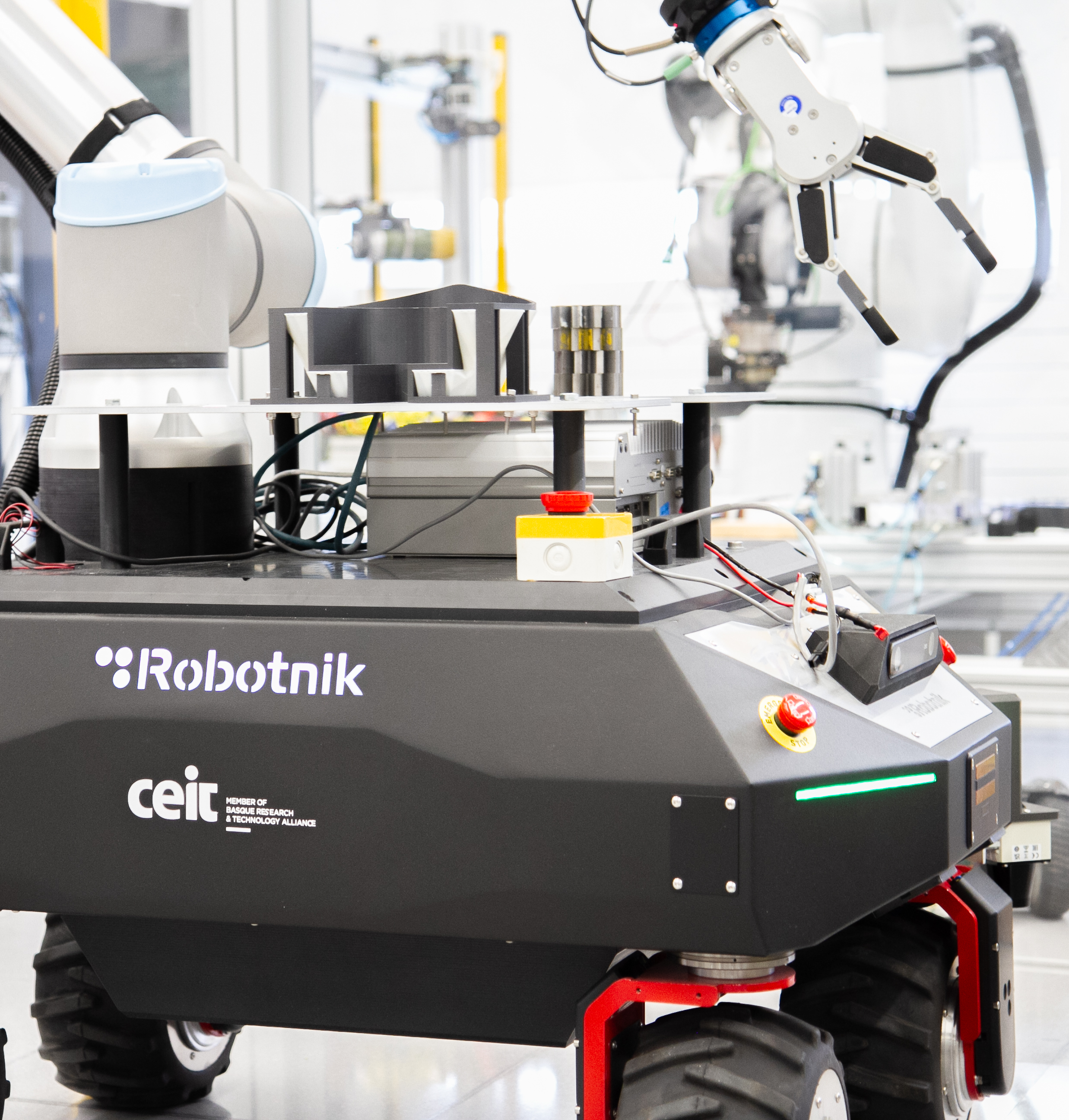News & Events
The FABRICARE project, spearheaded by Ceit, to promote smart industrial manufacturing

20 | 06 | 2024
The Ceit Technology Centre is spearheading the FABRICARE project to optimise all current processes through the development of safe, collaborative and smart manufacturing via robotics, interfaces and digital twins.
The project has been funded by 3.4 million Euros from the CDTI (Spanish Centre for the Development of Industrial Technology) via the 2023 Cervera Grants for Technology Centres.
Smart and collaborative industrial manufacturing is making significant advances thanks to innovations such as virtual and augmented reality, mobile robotics and Cyber Physical Systems. Use of these technologies enables the design of machines to be optimised, maintenance and control of production plants improved, and operator training also improved, thus opening up the market to the development of new industrial applications and business opportunities. That is why companies are increasingly demanding these types of solution to enable them to improve production processes, reduce production times and increase safety, in turn saving on costs.
Within this context, the FABRICARE (Collaborative, safe and smart manufacturing via state-of-the-art interfaces, robotics and digital twins) project has arisen – an initiative in which lines of work are being researched and developed that take into consideration different technologies within the area of smart manufacturing in collaborative environments. Funded by 3.4 million Euros from the CDTI via the 2023 Cervera Grants for Technology Centres of Excellence, it is spearheaded by the Ceit Technology Centre in collaboration with the CTC, Tecnalia, Ikerlan and Aidimme. technology centres.
A new concept in manufacture
The comprehensive vision of FABRICARE involves improving current manufacturing processes as well as reliable perception systems and their integration into a modelling and simulation platform made up of digital twins. “This platform will enable the production process to be simulated and analysed in advance, but also monitored and controlled in real time” explains Diego Borro, project coordinator and Ceit researcher. State-of-the-art interfaces will be developed using this platform based on different technologies.
In addition to coordinating the project, Ceit will be providing its knowledge and expertise to develop digital twins for simulation purposes, new haptic interfaces, state-of-the-art controllers for collaborative manipulators, sets of environment perception sensor systems and mobile robot localisation by merging optical techniques with radio frequencies. “This project constitutes a major milestone for Ceit. On the one hand, it means recognition of over 20 years’ work by the research group and, on the other, it will enable us to take a qualitative leap forward with a view to becoming established as a reference point on a national level”, Diego claims.
Increase in efficiency and effectiveness
FABRICARE pledges to provide a major boost in collaboration between technology centres and companies from within the sector, thanks to state-of-the-art virtual and augmented reality technologies and also the collaborative environments existing between individuals and robots. It is expected that this initiative will transform manufacture into a more flexible, automated, connected, social and smart area of activity. Technological improvements include the optimisation of machinery designs, plant maintenance and control, operator training, assistance with and resolution of any incidents, and the establishment of Industry 4.0 – in short, to improve processes, reduce production times, increase safety and save on costs, which will lead to an increase in the efficiency and effectiveness of manufacturing processes and of capital goods in companies, giving rise to a reduction in delivery times.
![]()
![]()
![]()